Partnerships lead to expansion of well water testing project, Well Empowered
When residents of Stokes County, NC first reached out to the UNC SRP Community Engagement Core (CEC) with questions about their well water, the CEC and SRP investigators launched Well Empowered, a pilot study to assess the presence of toxic metals in private wells used for drinking water. Fast forward several years and after a period of intense planning and collaboration, the CEC is expanding Well Empowered into another county, one that is particularly vulnerable to arsenic contamination.
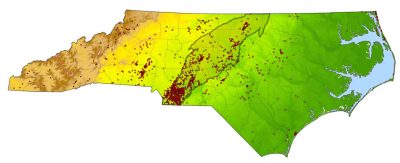
Map of NC highlighting arsenic detected in wells above the EPA limit. Credit: Rob Austin
“We are now focusing on Union County, specifically areas where high concentrations of arsenic have been found in private wells and with Black and Indigenous People of Color (BIPOC) and/or low-income populations,” said Andrew George, PhD, UNC SRP CEC Coordinator. “We will be providing well water tests and, in partnership with the Research Translation team, confidential, easily understandable results as well as identifying low-cost treatment options, where available.”
Well Empowered uses a community science approach to involve residents in collecting well water samples which are then analyzed for presence of toxic metals. In the latest iteration, investigators from UNC SRP Project 4 and community partners, including the Union County Health Department and Clean Water for NC (CWFNC), have helped to identify new focus areas for the project in Union County. At the outset, CWFNC helped to identify the most vulnerable communities in the county.
Several times over the past year, the CEC and Owen Duckworth, PhD, Rob Austin, and trainee Taylor Alvarado of UNC SRP Project 4 met with Traci Colley, Union County Environmental Health Director, the UNC SRP’s Research Translation team, and CWFNC to discuss Project 4’s work to map data from UNC SRP’s NCWELL database onto the underlying geology of North Carolina.
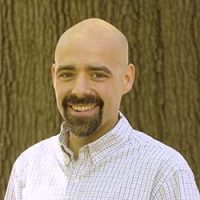 Owen Duckworth, PhD |
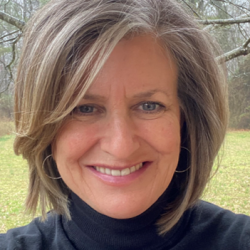 Traci Colley |
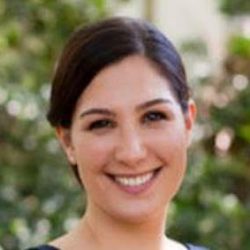 Veronica Oakler |
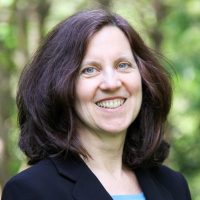 Kathleen Gray, PhD |
“This effort is leading towards better understanding of the geologic controls on contamination of wells, providing information on which areas are at most risk for arsenic contamination and helping to guide where to target water sampling efforts within the county,” said Duckworth.
Since arsenic cannot be seen, smelled, or tasted, private wells can be contaminated without anyone in the household knowing. Without testing, people may end up consuming unsafe well water.
“While some well users do test their wells and treat their water, many private well users need guidance and further assistance,” notes George.
CWFNC’s Veronica Oakler, Executive Director, and Christine Diaz, Environmental Justice Organizer, agree, and are eager to begin reaching out to Union County communities alongside the UNC SRP team.
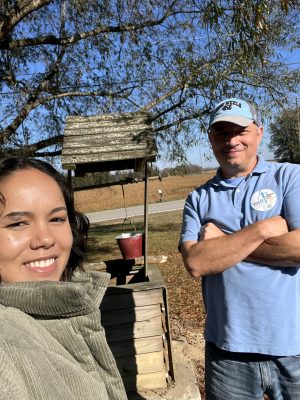
Christine Diaz and Andrew George, PhD, canvassing in Union County, NC
“We are excited to hit the ground running,” remarked Oakler. “We are pleased to leverage our past experience in community outreach and justice work in this region to help connect community members and groups with Well Empowered.”
“Partners are essential in connecting and building relationships with residents and community leaders,” said George. “They will help us reach people who have been left out of past well testing projects, including BIPOC and low-income well users.”
“In North Carolina as a whole, about 25% of Union County’s population relies on private wells for their drinking water,” added Colley, also a member of UNC SRP’s Public Health Action Committee. “Efforts like these are of utmost importance in helping us develop new interventions and low-cost treatment methods.”
Similar planning with community partner Winyah Rivers Alliance, and specifically the Lumber Riverkeeper, is underway to guide future Well Empowered activity in Robeson County, home to the Lumbee Tribe of North Carolina.
“Collaborative efforts like this one underscore the value of university-community partnerships,” says CEC Leader Kathleen Gray, PhD. “Working with partners on the ground in NC communities, we achieve more than we would alone. We will reach more people, including those who are most vulnerable to environmental pollution, and hopefully, we will come up with better solutions to the problem of contaminated well water.”
